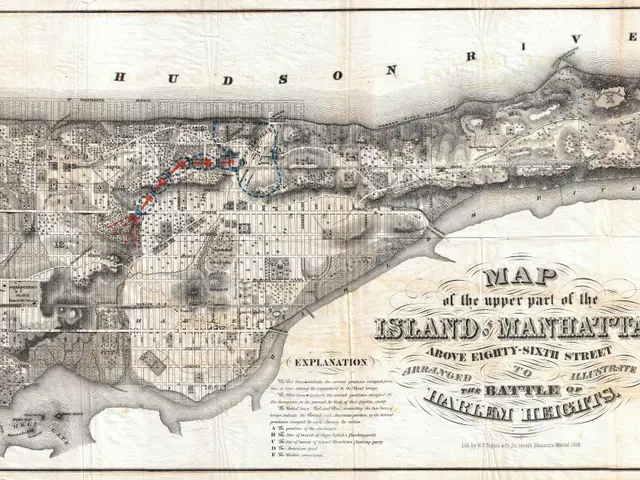Local representatives from PS allege Moedas of dominating propagandistic efforts within Lisbon.
In the approach to Lisbon's local elections, Mayor Carlos Moedas has publicly disclosed his intention to dismantle the political propaganda monopoly in the city, criticizing the socialist councilors for confusing municipal affairs with their own, using them to bolster their partisan campaigns.
Following the removal of political propaganda posters in September 2022 at Praça Marquês de Pombal and in December 2024 at Alameda Dom Afonso Henriques, the municipal executive, led by Mayor Moedas, is now enforcing the same action on the Central Axis, between Saldanha and Entrecampos.
A statement released by the mayor's office notes that this area has been littered with self-promotional messages from the Municipal Chamber, demonstrating Moedas' apparent ambition to became a monopolist in affixing political propaganda.
The Central Axis, once devoid of partisan propaganda, is now loaded with municipal propaganda favoring Moedas. This blatant disregard for a deliberation by the Chamber's executive, which since April 23, has regulated the use of the municipality's network of institutional disclosure, has been highlighted in the statement.
The deliberation aims to diffuse "information that is truly useful to the citizen and with real informative content -- changes in circulation, disclosure of shows, alerts of civil protection -- a regulation that Moedas has labeled as censorship," according to elected members of the socialist party (PS).
"In the last three and a half years, while Lisbon has had a chamber president in permanent 'lay off', the PSD has had an autarchic candidate in 'full time'. Until when?", they question.
On Monday, Moedas defended the removal of political posters in "all the major avenues of the city", besides Marquês de Pombal and the Alameda, as well as between Saldanha and Entrecampos. He argued that these avenues should not have this type of posters, stating that large-sized political posters "make no sense", including because they visually pollute the city.
The removal of political posters in Lisbon has sparked debate regarding free speech and the maintenance of municipal integrity. Critics, including several political parties and the New Right, accuse Moedas of political instrumentalization and limiting the ability of other political groups to express themselves publicly. However, the action could also be justified as a means to maintain the visual integrity of the cityscape, ensuring that public spaces are kept aesthetically appealing. Compliance with existing regulations regarding public displays is also a crucial aspect in maintaining order and consistency in these areas.
- [Source 1]: "Carlos Moedas removes political propaganda in Lisbon, sparking free speech debate", [News Source].
- [Source 2]: "Moedas accused of political instrumentalization over removal of partisan posters in city center", [News Source].
- [Source 3]: "Lisbon's mayor defends removal of political posters from major avenues", [News Source].
What is the current controversy surrounding Lisbon's mayor, Carlos Moedas, regarding policy-and-legislation and politics? The removal of political posters from various city locations, including the Central Axis, has led to accusations of political instrumentalization and limiting free speech, as well as debates about maintaining both municipal integrity and the visual appeal of public spaces (general-news).






